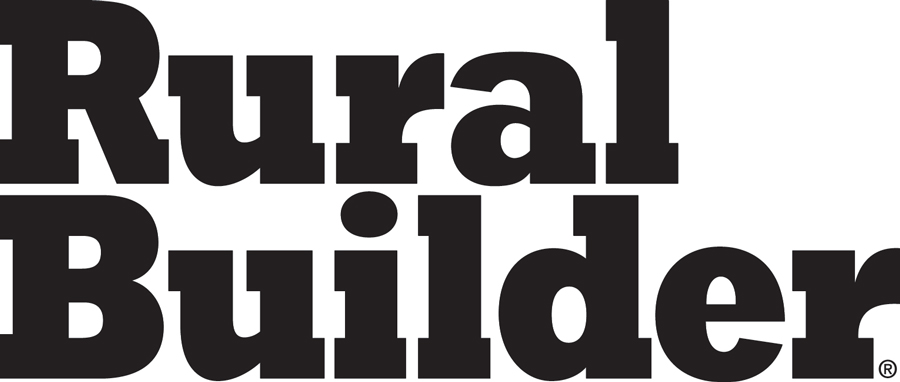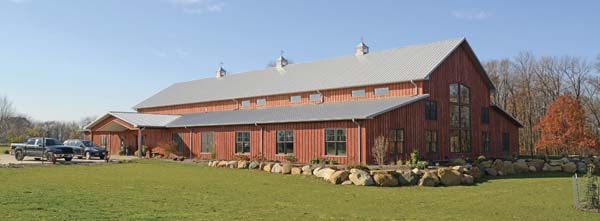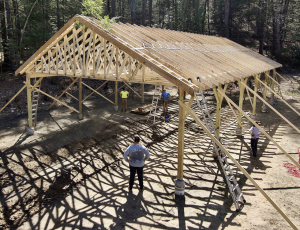Organic vs. Paid Reach
Any discussion of business promotion through social media will include the terms “organic reach” and “paid reach.” Organic reach refers to the number of people who see and act on your content without you paying for distribution. Organic reach includes people who see your posts through shares and like notifications, and people who see your content on your Facebook page. Paid reach includes the people who see your content as a result of paid promotions. Facebook, Instagram, Twitter, LinkedIn, and Pinterest all have marketing options that will guarantee your posts get in front of more eyes. If you’re tackling social media alone, you may want to wait before shelling out dollars for paid reach until you hone your skills and make your messages engaging enough to have a return on your investment.
Best Platforms For Business
Social media, in a nutshell, are websites and applications that allow users to participate in social networking and create and share content. Signing up is free (supported by advertising) and they are designed so users can create deeper, more meaningful relationships with friends, family, or even strangers around the world. While there are many social media platforms and apps available, there are a modest handful that construction companies will find most beneficial for promoting their businesses. The key platforms businesses should gravitate to are Facebook, LinkedIn, Pinterest, Twitter, and Instagram. For the sake of brevity and space, we’ll focus primarily on Facebook, which is the figurative 800-pound gorilla of social media platforms.
Facebook Is King
When it comes to the number of users, clearly Facebook is the leader by far. It has the largest and most qualified audience that contractors and builders want to tap into. Morgan Arwood, Membership Director for the National Frame Building Association (NFBA), recommended Facebook as the most qualified social media platform for construction businesses: “Facebook is where people are looking for advice and referrals. It’s the most widely used [platform] used by a seasoned demographic with money to spend.” She recommended builders look at Facebook first. “It has a more experienced crowd,” and the chances of being seen by someone who would be able to fund a project like a horse barn, shed, or hobby shop are better than on the other social media platforms.
Fear Of Negative Feedback
Some businesses make the decision to stay off social media out of concern that former clients may use it to post negative comments. Sometimes bad things happen to good companies. If someone has it in their mind to post negative comments about a business, they’re going to do it regardless of whether or not that business is on social media. If the business is on the platform, that business can face it head-on and diffuse it. The ABC Supply Pro Council advises, “While a negative review is disappointing, it also presents an opportunity to showcase your customer service. Thank the customer for their feedback and let them know how you’ll make things right.” If possible, take the conversation off of social media, but post how the issue was resolved.
Companies Already Leveraging Social Media
You might have more to say than you think on social media. The ABC Supply Pro Council said, “Between sharing project photos and providing company services and updates, there are many positives to your business being on social platforms.”
Graber Post Buildings and Wick Buildings are two companies that have already been active on social media for years. Graber Post’s Trent Wagler said his company started using social media in 2013. The company is currently using Facebook, Instagram, and YouTube to showcase completed projects. “We love to show the great craftsmanship of our crews. We also make posts to notify our social media audience of any monthly specials, closeouts, or other sales that may be coming up.”
Wick Buildings first entered social media using Pinterest and Facebook many years ago said Bret Buelo, Marketing Director. “Shortly after that, we began to post videos on YouTube and followed that with blogging, Twitter, and LinkedIn.” Many of these companies’ posts get hundreds of reactions and shares, which add to the organic reach of each post.
Growing Your Presence
“One way that you can bolster your company’s social media presence is by sharing posts from industry associations on your company’s own pages,” advised the ABC Supply Pro Council. “These organizations are often respected by your customers, so sharing content your customers know they can rely on will make them more likely to trust your company as well. By interacting with industry associations on their pages, your company’s name could show up in front of people who are looking for a builder or contractor.”
Growing that presence can also attract qualified job applicants to your door. “Nearly 80 percent of job applicants use social media in their search, so posting job opportunities on Facebook or LinkedIn is a good way to reach them,” they said. “Posts about your company’s culture, such as information about training you offer your employees, photos from a holiday party, or a message congratulating an employee on a work anniversary, can give potential job applicants an idea of what it would be like to work for your company. This content can give job seekers valuable insight that a job posting might not.”
Getting Started: Social Media Do’s & Don’ts
All you need to create a Facebook business page is a personal Facebook account. Fill out all the relevant information (Facebook provides prompts for this information), making sure to link back to your website if you have one. You want your page to be engaging and look professional.
Arwood advised you can start out slow and learn as you go. “By starting Facebook, you don’t have to post every day. Grow your network at your own pace,” she said. “Do your homework. You want to have a cover photo and a profile picture. Your profile picture should always be your logo. Your cover photo can be your product or a secondary message.”
“A common mistake that companies make is starting a page but never posting,” said the ABC Supply Pro Council. “While you don’t have to post every day, it’s important to post regularly to build awareness and credibility for your company. Have a plan for what you’ll post, so you’re not scrambling to come up with a post at the last second. Decide who will be in charge of posting to your social media pages, and make a schedule for what topics you’ll post about and when,” they advised.
Creating compelling social media posts can be tricky. You have to remember people on social media aren’t there to be hit up with sales pitches. Your social media presence should be genuine and engaging without being overly commercial. “Don’t over-promote yourself,” recommended Arwood. “Your content doesn’t always have to be about yourself but it can always be relevant to your demographic.”
“Social media channels help drive potential customers to your website,” said the Pro Council. “Social media is also an easy place to share your website’s content, like photos, information about your services, and customer testimonials. When sharing a link from your website on social media, be sure it’s visually appealing by including a photo.”
Pictures Are Perfect
Everyone is in agreement that including images and video in social media posts results in the best engagement. “In today’s world it seems people would rather see a nice picture or watch an informative video before reading a bunch of text,” said Wagler. Facebook, Pinterest, and Instagram are all ideal visual platforms to show off what you can do. “Images and videos are 40 times more likely to get shared on social media than content without a visual,” the ABC Supply Pro Council reported.
While making regular posts is recommended, don’t overdo it. “Don’t wear your audience out,” recommended Wagler.
To keep track of who is posting what, when, the NFBA’s Arwood recommended creating a calendar. It also means monitoring who is posting on your page and responding to your posts. “If someone has a bad experience, address it immediately,” Arwood said. “Publicly address it so it’s not hanging out there. If it means you owe them an apology, give them one. Be honest and transparent.”
Buelo added, “Don’t underestimate the time doing good social media takes, and don’t get hung up on the number of ‘fans’ your social accounts have – the research says that the interaction is key, not the number of fans your advertising has bought.”
Marketing On Social Media
Sam Beiler, co-founder of Boostpoint, a company that specializes in helping small and medium-sized roofing companies not get lost or left behind in the digital space, had his professional start working for his family’s roofing business when he was just a teenager. The family developed a self-propelled trailer for handling debris (the Equipter). Once the Equipter was ready for serious marketing efforts, Beiler switched from swinging a hammer to marketing the innovative trailer that remedies the roofing debris issue.
Beiler explained, “Equipter was a solid product, but we needed to figure out marketing and getting it out into the world.” Social media played a large part in helping them grow the Equipter Company. Founded two years ago as the roofing company’s marketing division, Boostpoint helped grow Equipter from a 12-person company to a company that now employs more than 50. “Our business growth was fueled by social media marketing and trade shows,” Beiler said.
In talking with fellow roofing companies, Beiler discovered that the companies knew they needed to be on social media, but didn’t know where to begin. “Everyone knew about the social media opportunity, but when I actually asked them, they weren’t leveraging it. What I found was the ‘how’ was missing,” Beiler said. “There wasn’t an easy way for most roofing companies to figure out how to leverage the ad platforms themselves or go to a marketing agency to figure it out for them.”
In January 2019, Boostpoint split off to become its own company, independent from Equipter. Beiler says Boostpoint’s mission is to help small businesses grow with the macro shift to digital so they’re not left behind. It developed a templated digital service that small companies can use to target potential customers and generate leads.
In the current social media landscape, Beiler said Facebook is the place where any sort of contractor would get the most return on investment (ROI) out of their advertising dollars. He said if contractors can master two things, they will be happy with their Facebook marketing efforts. The first thing is targeting. If a company can get themselves in front of the right target audience, they will be satisfied with the results. Facebook is capable of targeting an audience down to a one-mile radius; you just need to tell it where you would like your post shown. (Imagine if your next three jobs were within a mile or two of the job you’re currently working on.)
When it comes to specific ways roofing companies can use social media platforms, Beiler suggested running engaging Facebook ads that will appear in the neighborhoods in which the roofing companies are currently working. For example, if a company is doing a roofing job in a neighborhood, people are seeing their trucks in that area; they already have some degree of familiarity. Beiler explained there’s an easy way to create a connection between your company and potential customers: “Create a 15-second video with a smartphone or a drone, saying something like, ‘We’re working in your neighborhood and offering free roof inspections over the next two weeks.’” He said by posting it on Facebook and targeting that specific area (the neighborhood), you’re creating a post relevant to potential customers. “It’s relevant to the viewer and the contractor,” Beiler explained. “You’re building urgency with an offer like that without offering a discount.”
The second thing is creating engaging content that doesn’t feel like an ad. Billboard-type posts, TV- and postcard-type ads don’t work well on social media because Facebook users aren’t on the platform to look at commercials. However, simple videos created with a smartphone that tell the audience how you can solve a problem for them are engaging and can elicit action from that audience. Facebook marketing is an extension of your sales effort, he said, but it’s more personal. “To create engaging content, add action photos of people working, close-up photos, or videos. You can use selfie-style videos to provide valuable pieces of information to customers while out on a job. You don’t have to hire a professional to do this. Use a smartphone to take photos or videos at different jobs your roofing business has,” suggested Beiler.
What About YouTube?
While not a social media platform, having a presence on YouTube can also be beneficial to construction companies. Anyone can launch their own channel; it’s easy, and it’s free. “YouTube is a great way to get your videos uploaded,” said Arwood. “Then distribute your videos through social media platforms. And you’re able to respond, like, and comment right on YouTube, too.”
Not On The Web?
You Can Still Benefit
Word of mouth is a powerful thing that businesses on the web and off will benefit from. A good word from customers who are happy with your services and products goes a long way. Beiler explained, “If I’m a company with no digital presence, there’s still some value you can get out of social media. Your customers are still on those platforms and your potential customers are still on those platforms.” People are always asking for recommendations on social media. “They could ask their customers, if they’re happy with their service, to recommend their company on Facebook or on the Nextdoor platform,” he said.
Howie Scarborough of SnoBlox-Snojax summed up the need for a social media presence: “I think most suppliers have learned that they have to compete in the digital space as well as print, it’s just finding the right balance to effectively engage your demographic.”
Assistance With
Social Media
If you would like to learn more about what you can do to create a meaningful and effective social media presence for your company, NFBA Membership Director Morgan Arwood can be reached at [email protected]. Also, ABC Supply’s Freedom Programs offer assistance in creating websites for construction businesses. You can also get business-building tips on the ABC Supply blog at abcsupply.com/blog. Learn more about social media marketing by watching Boostpoint’s YouTube channel (https://bit.ly/33DHy5j) or by visiting boostpoint.com.




















